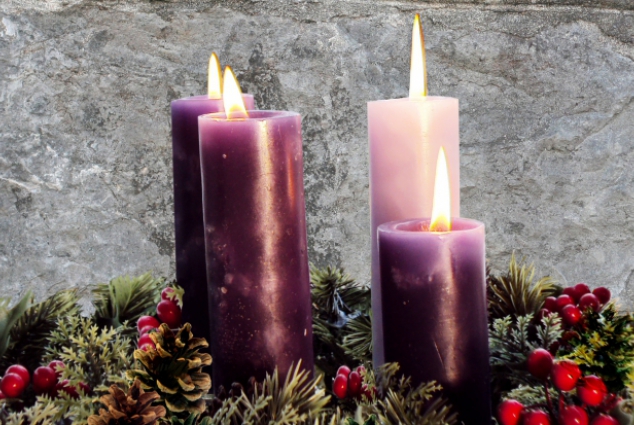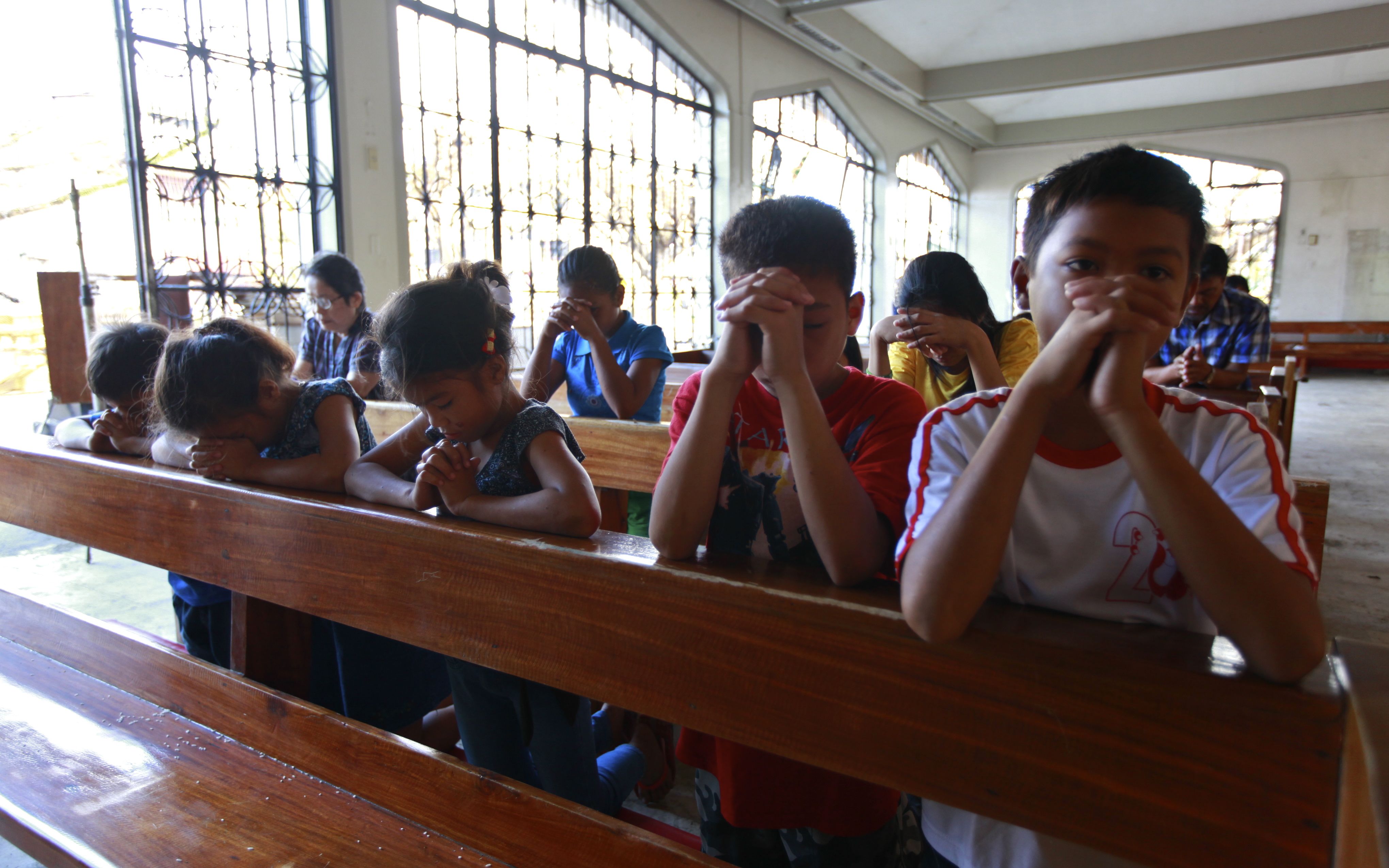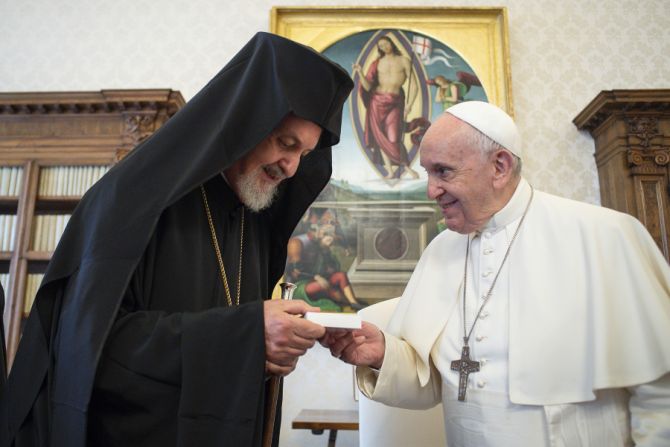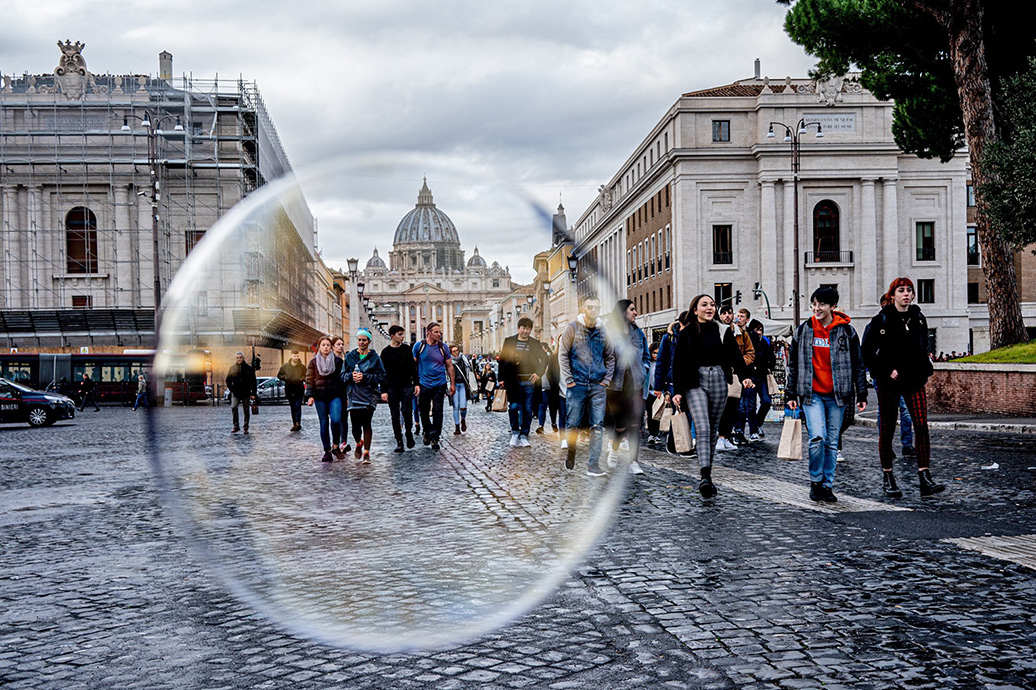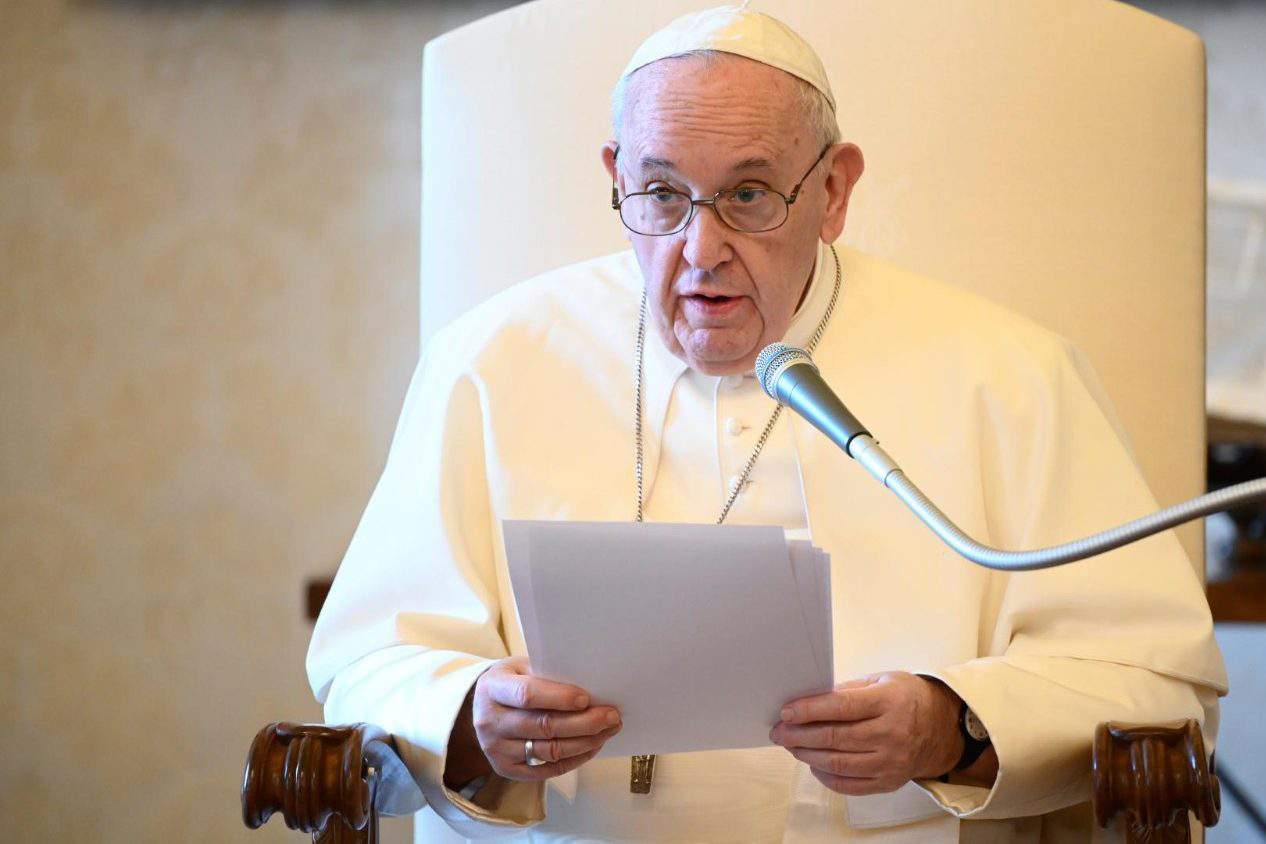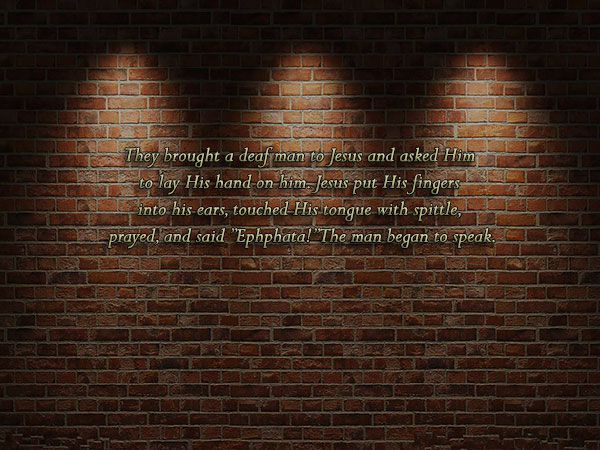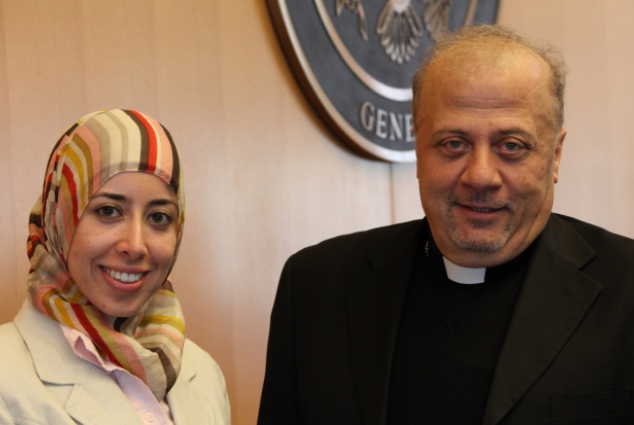
Interfaith harmony demands a mutual respect for human dignity. In Jordan, Father Nabil Haddad is working to make that happen.
Father Nabil Haddad wants you to visit Jordan. Although his desk in Amman is a long way from the homes of most U.S. Catholics, Father Nabil says the troubled region needs attention. Catholics, he says, need to show support for persecuted Christians who seek refuge in Jordan. And Westerners, he says, cannot continue to watch from afar.
Haddad, a priest in the Melkite Catholic Church, is the founder and director of the Jordanian Interfaith Coexistence Research Center (JICRC). He is well known both in Jordan and internationally for his work in interfaith relations, primarily between Muslim and Christian groups in the Middle East.
“Come,” he says. “Pray with us. Eat with us. Talk to us. Visits from you are the best manifestation of solidarity.”
It’s with this same sense of urgency that Haddad has focused his work in Jordan—an aberrantly safe country in a turbulent region that faces many threats, most recently that of the self-proclaimed Islamic State (also knows as ISIS).
Last summer, when ISIS took control of Iraq’s second largest city, Mosul, the extremist group also drove Christians out of areas that have been their homes since the first century after Christ.
As these Christians along with other persecuted minorities seek refuge in Jordan, Haddad has worked not only to promote tolerance between Christians and Muslims but also to form an alliance of all Jordanians working together for peace.
What was it like growing up as a Catholic in a Muslim country?
I was born and raised in the northern part of Jordan, the same part of the country where the prophet Elijah was born. I’m a descendant of an old Arab tribe here that is called the Sassanids. This big tribe existed and lived in this part of the Middle East for a very long time. Christians are small in number here, but we have a very long history.
In my early childhood years, I went to kindergarten at a Catholic school. But because my father was serving in the military, for elementary school I went to a public school for the dependents of the people in the military. It followed the same curriculum as other public schools, so Islamic education class was mandatory for Muslims. For Christians it was not mandatory, but I did not have any problem attending a class on Islam. I was a Catholic boy who attended Mass every morning before school. And I was an altar boy, but I did not have a prejudice against being in the Islamic education class.
On many, many occasions, I would be the first to answer the questions of the teacher who, in those years, was a Muslim imam. Sometimes I was asked if I would recite passages from the Holy Quran. I would get rewards and prizes. Sometimes the imam would say, “Let’s give him a hand!”
That experience added so much to my formation in the later years that I spent in the seminary. I joke that I speak Arabic better than 99.99 percent of the Muslims of this world. I studied Islam. I love the Arabic language.
This gives me so much added value when I talk to my Muslim neighbors because they know I come from a background that understands Islam and the Quran. On many occasions they praise the fact that an Arab Christian and Arab priest knows and loves the Arabic language, which is the language of the Holy Quran. Sometimes I use this as one of the commonalities to connect with Muslim audiences. But this, by no means, has affected my very close relationship with the Catholic Church.
Are there parts of the Quran that you find useful to know today?
Yes, indeed. There is the sura that talks of St. Mary. I admire the respect and reverence for the Virgin Mary in the Holy Quran. There is also the sura that talks about the obedience and respect we need to give our parents. That is also the fourth commandment. I also refer to the oneness of God that is proclaimed in the Holy Quran.
I concentrate on these instances because this is what we have in common. I don’t quote the Holy Quran, but on many occasions I reference commonalities between Islam and Christianity. It’s not a matter of admiring Islam but admiring the common living that existed for many centuries.
You’ve been advocating for greater appreciation of Islam among Christians. When did you start working toward this goal?
This concentration started after 2001, after 9/11. Because of the schism that we saw in the world, and how some people were starting to view Islam, I thought it was very important for Christians to clarify things on both sides.
I came up with the idea that Christians need to work together with Muslims to make changes from within our society in Jordan. At the same time, I needed to speak my intentions and objectives in a way that Muslims would accept. This is where I refer to examples from history and Islam. I always concentrate on the fact that the teachings of Islam call for the respect and acceptance of both Christians and Jews.
That’s how I appealed to the hearts and minds of Muslims. I built a rapport and friendship through which I was able to serve my own people and my community. I was able to convey a message, and I believe that concentrating on my Christian love was a good method of evangelization.
How do you, as a Catholic priest, approach dialogue with Muslims?
My calling is to be a Christian in a society with a Muslim majority. A Christian is a Christian whether here or in France, Japan, or South Africa. A Catholic priest is a Catholic priest in any part of the world. But the terminology we need to use is different. Spreading a Christian message to the Muslims is different than giving a sermon from the pulpit
on Sunday.
I tell them, “I remind you to be good Muslims as much as I remind myself to be a good Christian.” I try to make it easier for my Muslim friends to understand my Christianity in very Arabic terminology. I show them this respect as an Arab Christian, as an interfaith activist, and as someone who has an image of being liked by the Muslim community.
I try to use this in a very positive way to convey a very Christian message that needs to be understood by every Muslim. I admire their understanding.
How can Muslims and Christians help to prevent the distortion of Islam by radical groups like ISIS?
Muslims and Christians need to form an alliance against ideological extremism. This endeavor will show Muslims that they are not alone. But moderation needs courage. And these days, it needs additional courage because the extremists have a louder voice. They are the ones trying to influence the majority.
The strategy from my visceral point of view is to shift from dividing ourselves, with Islam on one side and the West and the Christians on the other. I connect, I build, I support, I join hands with Muslims to remind them that we need to be building peace, love, and mercy—not extremism, hate, killing, and bloodshed. I remind Muslims that they are doing themselves a favor. They are not doing non-Muslims a favor. They are doing themselves a favor by saving Muslims who have not become radicalized.
Has the rise of radical extremists made your peace-building work more challenging?
Yes. In Jordan, we have some worries as Christians. Jordan is not isolated. It’s secure, but it is in a very turbulent region. Syria, Iraq, North Israel, South Lebanon—they are all around us. We see the persecution. We see the murders. We see ISIS. We have ISIS supporters in Jordan. There are ISIS sleeper cells here.
But I don’t isolate the Christians’ worries from the worries of any Muslims. It would be very threatening for Christians not to coexist with Muslims. Christians must understand, here in Jordan and everywhere, that to be isolated by religion or to live in a Christian ghetto is very dangerous. Unfortunately, this is what we saw happen in Iraq.
Let’s take Egypt as an example. Before the second revolution in 2013, Christians were isolated and faced discrimination. Intense clashes between Christians and Muslims during the 2011 Arab Spring uprising created a climate of fear that prompted an estimated 100,000 Coptic Christians to flee Egypt. Isolation for Christians means suicide.
But it will be fatal if Christians see danger as only affecting Christians. We melt within our society as Jordanians, and we need to confront the rise of extremism together in one Jordanian alliance.
Are you seeing more examples of Christians and Muslims coming together?
This is happening every day. If you see what is taking place on social media, you will see there are debates between Muslims and ideological extremists. For instance, I saw an extremist on Facebook call on Muslims to not socialize with Christians on Christmas because he said Christians were infidels.
But people responded to the extremist’s comment and said a true Muslim would not do this. I saw that this response came not from the Christians but rather from moderate Muslims. The moderates were attacking the extremists for the way that they interpreted the Islamic faith.
I also saw Muslims and Christians get together on Christmas. In my own church, in my own house, I had Muslim friends who came to congratulate us on Christmas. It is not done as an artificial gesture but a manifestation of this fraternity between Muslims and Christians. It has become more and more a part of the strategy in the daily life of Jordanians as we face the threat and reality of ISIS.
Now both Christians and Muslims who fear the threat of ISIS know they need to work together. We need to have this kind of friendly relationship, this amicable way of life, to stand against ISIS.
How are Christians and Muslims in Jordan working together on a broader scale?
In February, we celebrated World Interfaith Harmony Week. This is an initiative that was very Jordanian at the beginning. It was proclaimed by the United Nations General Assembly in 2010, and it was adopted unanimously. We called on all houses of worship—churches, mosques, synagogues, temples, etc.—to talk about two commandments: love of God and love of our neighbors.
The idea is that we are building harmony. We keep telling people that we need to show our love of God by showing love to our neighbor. It’s about time people realize there will be no dialogue in the interfaith community if we do not respect human dignity.
This concept is not about working on interfaith dialogue by discussing theories or theology. It is about concentrating on the common values we share as human beings. For me, I am a Christian. As a Catholic priest, I talk about the Christian understanding of love.
For Muslims, they could choose to talk about mercy. Islam is talked about as the religion of mercy. We need to show love and mercy. Love and mercy cannot be rooted deeply in our daily practice if we do not remember our concern for the dignity of the human being.
This is the major terminology that we find in common between Islam and Christianity. For Christians, we talk about being created in the image of God. That is the greatest dignity a human being can have, to be made in the image of our God, our creator. Muslims believe in the same thing. This is what we have in common: the dignity of the human being.
I recently helped start an initiative called “Muslims and Christians Together for Human Dignity.” We need to defend it. And in this region, I believe human dignity is in jeopardy for everyone. We need to work very gently to protect it.
We also need to remind each other that God gave us this dignity. We need to respect God and obey God by showing our respect for human dignity, which we see in everyone. When we respect this dignity in others, we are respecting God.
How has Jordan been affected by the influx of refugees from surrounding countries in the wake of ideological extremism?
We have almost 1 million Muslim and Christian refugees from Syria and Iraq living in Jordan right now. It is very important to consider the region as a disaster area. Here I have seen that Christians are suffering.
It’s so very unfortunate, and we are living this dilemma with our brothers and sisters. We are giving them housing and food. We are giving them all the support we can. In my church, we are hosting families from Iraq, and we are working with other church organizations to provide support.
But the one thing we want to tell our brothers and sisters who are the victims of ideological extremism is that here in Jordan, they are not refugees. They are our guests, and we are here to serve them. This is a very strong message for both Muslims and Christians in our country.
This effort is mandatory. In this region, because Jordan is so close to these events, to these tragedies, I think it is our mission to raise our voice. We must speak with wisdom and tell the truth of this region to the whole world.
The plight of Iraqi Christians is very important for this region to realize. It is not the duty of the Catholic Church or Christians in general to address this situation alone. It is the duty of the whole world, the international community. They need to stand and support these Christians, not only as Christians, but also as human beings, as the citizens of one of the oldest civilizations in the entire world.
What is the current status of Iraqi Christians? How severe is the persecution they face?
I am talking to you while the church in Iraq is celebrating three days of prayer and fasting. They were called to spend three days of the fasting of Baoutha, which means “the cry” or “the cry for help” in the Chaldean rite.
In the north of Iraq, churches, holy sites, and Christian artifacts have been demolished by ISIS. For the first time in nearly 2,000 years, there are no Christians left inside the city of Mosul. Some of them went to Kurdistan, others went to Baghdad. I believe the Chaldean voice, the Christian Iraqi voices, should be carried as a cry not for the Christians but as a cry for peace for all.
The Christian voice and the Christian identity is not only being tortured—it’s being demolished. More than 120,000 Christians have been forced from their homes in Iraq over the last year. What we see here in Jordan is a manifestation of the daily pain that the church is having, and we need to move and to move fast, to work with superpowers, with the United States, with Europe, with the United Nations Security Council.
I believe we need to reach out not only to the Catholics but to all the people of goodwill. This refugee problem is not only about solving the problems of food and shelter.
It is also about the dignity of these people. They have been victimized for no reason other than that they are Christians. And I’m not saying they are the only victims. Many other minorities, such as Yazidis, were tortured, killed, and raped by extremists.
This cannot continue. We should not simply watch this behavior and respond only with condemnation. We need to do something to save the lives and the good in this region.
Since the United States’ invasion of Iraq in 2003, we have watched Iraq go through a time of bloodshed and killing. And because so many Iraqi Christians have faced recent persecution by extremists, I think the Christian churches must raise their voices not only to protect Christians but also to work and to show their support for the human dignity of all.
I called upon Christians when I spoke at a gathering of 1,200 participants in Washington. I asked for the support of our Christian brothers and sisters of the United States and of Europe to show more solidarity than just their support in the media, on TV, and in newspapers.
We need to see more Christians coming to this region, showing this support, and to shake and reshake the conscience of the people of the region. The world cannot continue to be silent or watch from afar.
What does the loss of these Christian communities mean to Muslims in the region?
I always say, “How could Muslims talk about a tolerant Islam, a moderate Islam, when they do not protect and preserve the existence and the presence of their Christian brothers and sisters?” Christians should be given the freedom to be witnesses of Jesus Christ.
The Quran mentions a mandatory respect for Christians and Jews. No one in the world is going to believe Muslims are living out their faith if they don’t reflect such respect for their immediate neighbors, local citizens who have lived here long before Islam began. How can Muslims talk about their faith if they don’t show this faith in action? We need to show within the Iraqi society that Christians are not only an integral part, but also that Christians have always been an added value to the society.
This diversity within the society is the best practice for Muslims. It allows them to experience this kind of dualistic nature within the society. If we look at other societies where Muslims are the majority or the societies where they have fewer Muslims, you see there is extremism. Adding minorities does not only serve the existence of this minority, but it also teaches and reminds the majority that they have to live with these minorities and have to recognize dignity and show respect for them.
I say this as a member of a minority in Jordan. In some parts of Jordan, where you see villages that don’t have Christians sharing in the life of the society, people are more reluctant to deal with non-Muslims. It is as important for Iraq to protect the non-Muslim community as it is to protect the Muslim community in order to preserve diversity and peace.
What can American Catholics and Christians do to help the situation?
Christians in this region need to hear a louder voice of support and solidarity. Many of them, especially the Iraqis, feel they are left out. We have to stop these very unjust aggressions and killings, and the international community needs to realize this and speak up.
There are powerful nations that can help to accomplish this. We need a stronger will on the part of the international community from Christians, from Catholics, and from Westerners.
Our Christian brothers and sisters are showing solidarity and support. We need to push now and exert enough pressure in order to bring these refugees back to their homeland. We owe it to them to offer support so they can get back to their homes. They cannot continue living as refugees. This—to furnish them with their basic rights and not to be driven out of their own homes—is a very Catholic and a very Christian duty.
Now, some of them believe that they cannot go back to Iraq because it’s not safe. Many of them are trying to leave Iraq forever, and they say this openly. This is a very big loss for the Christian witness in this region. These Christians don’t have anything. They have no money. They don’t have their own documentation. They don’t have their papers. Many of them are losing hope.
That’s why we need this region to hear a loud voice on the part of our brothers and sisters, the Catholic Church in the United States, and other Christians. We need to see this solidarity in order to give refugees hope in this region.
We need this kind of hope. We need it. How can people live without hope?
This article appeared in the May 2015 issue of U.S. Catholic (Vol. 80, No. 5, page 18–22).
– See more at: http://www.uscatholic.org/articles/201512/catholics-and-muslims-common-cause-30488#sthash.QN3WdD1c.dpuf



